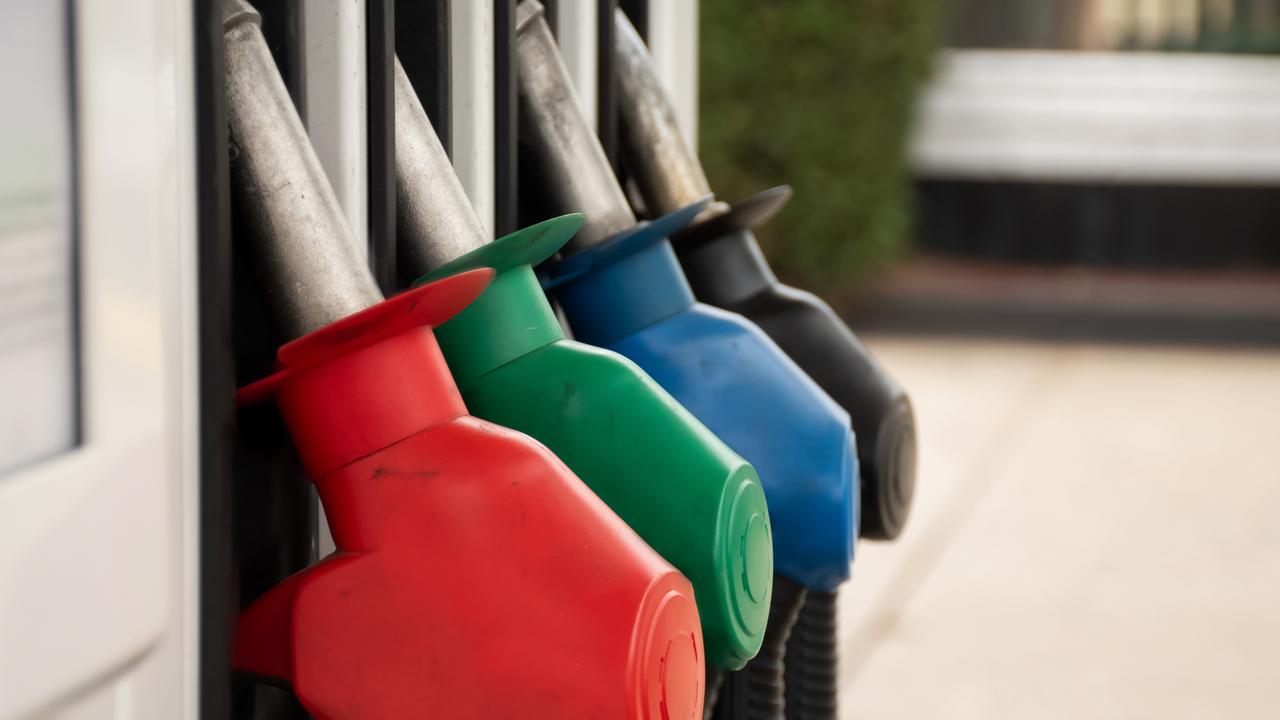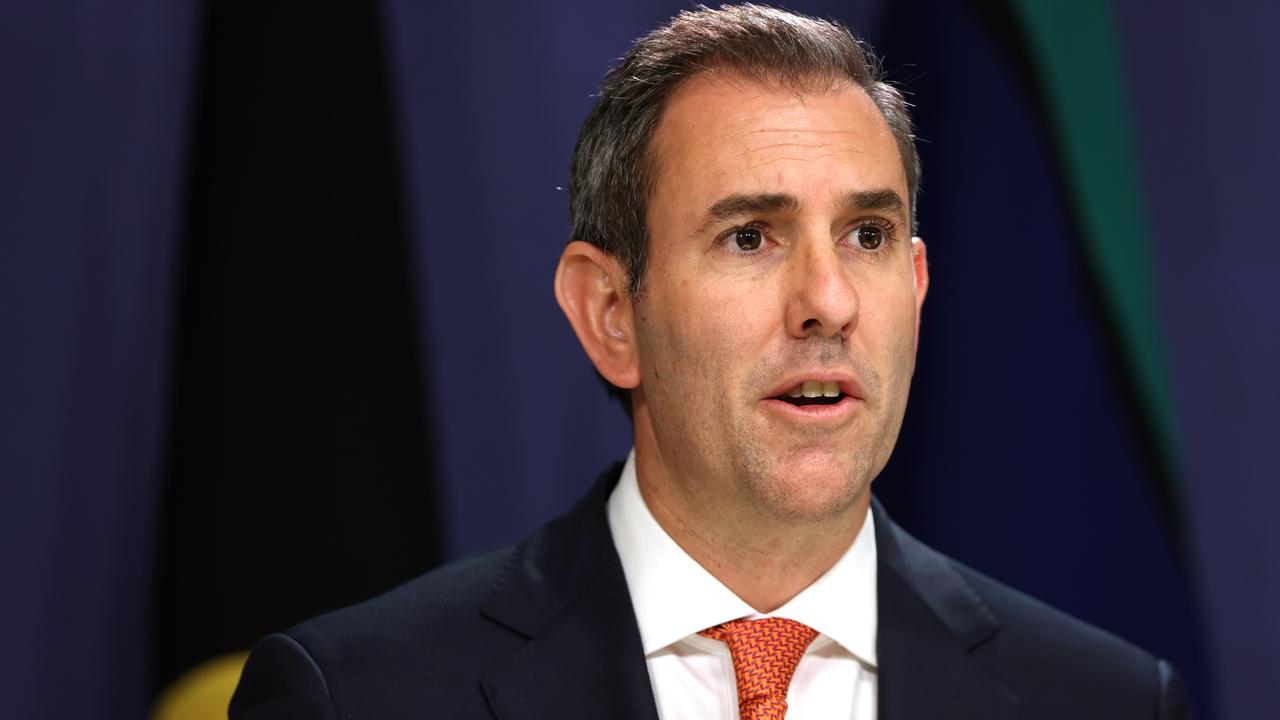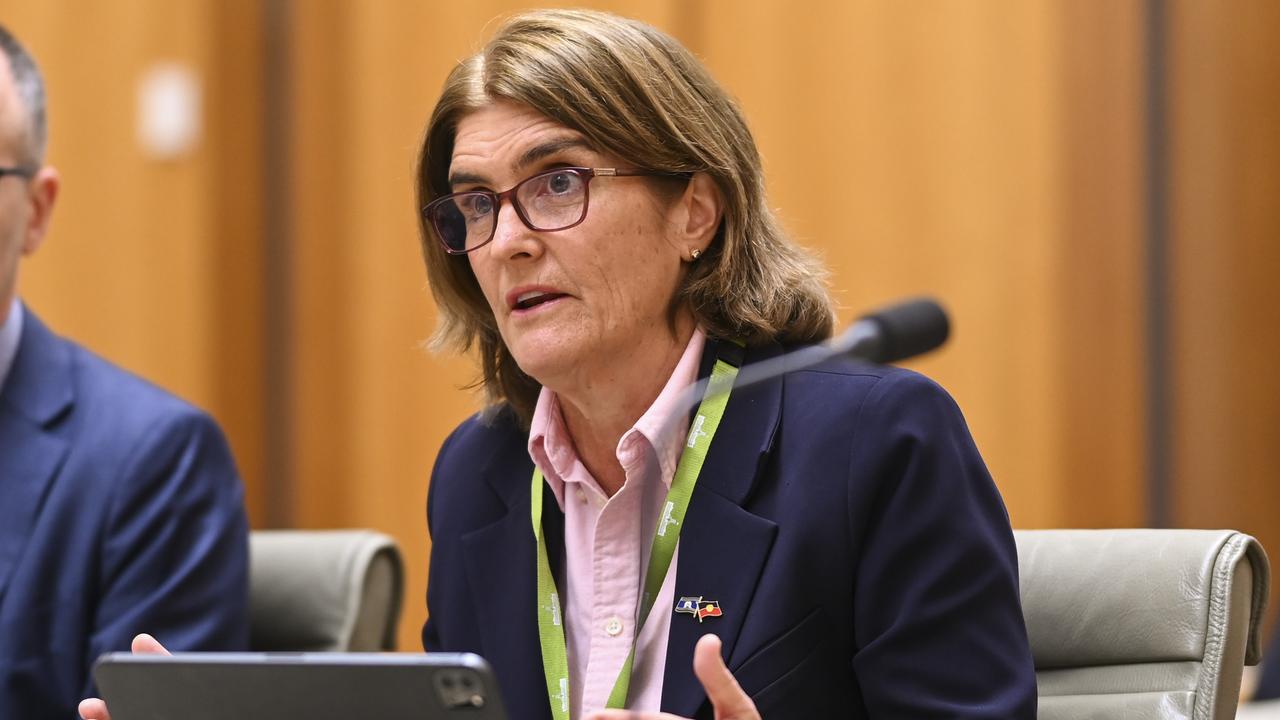Jim Chalmers talks petrol-driven inflation on 7.30
The Reserve Bank has slugged homeowners with another rate rise and a recent surge in petrol prices is partly to blame.

Treasurer Jim Chalmers has marked out a spike in global oil prices as a key reason why Australian homeowners will fork out more money on their mortgages.
Appearing on the ABC’s 7.30 report with Sarah Ferguson, Mr Chalmers said an increase in petrol prices mid-year had propelled the price pressures that pushed the Reserve Bank of Australia to lift the cash rate again on Tuesday.
“In that three month period – July, August, September – there were wild fluctuations in the petrol price that people were paying at the bowser and that’s because some of the big oil-producing countries on the other side of the world took a decision to wind back on supply and that pushed prices up,” he said.
“The biggest part of the most recent inflation data was the fact that we had a spike in that petrol price.”
Brent crude, a benchmark for oil prices, is currently trading for about US$83, a 13 per cent increase from June, when it traded at a low of about US$72.

An increase in the price of oil can have inflationary pressures because of the pervasiveness of energy in all parts of the economy.
A rise in petrol prices means transportation companies need to pay more to ship goods to market, which can flow on in turn to price rises for consumer goods.
The RBA has moved sharply to tame a surge in inflation following supply shocks from the Covid shutdown and the breakout of war in Ukraine.
It raised the cash rate from 0.1 per cent in April 2022 to 4.1 per cent in June 2023 and on Tuesday, RBA Governor Michelle Bullock announced a 25 basis point hike to 4.35 per cent
The RBA cash rate serves as a benchmark for interest rates in the economy, with banks generally quick to raise mortgage rates as a result.
“Inflation in Australia has passed its peak but is still too high and is proving more persistent than expected a few months ago,” Ms Bullock said on Tuesday.
“The latest reading on CPI inflation indicates that while goods price inflation has eased further, the prices of many services are continuing to rise briskly.”
The RBA is moving to return inflation to its target range of 2-3 per cent.

“High inflation makes life difficult for everyone and damages the functioning of the economy,” she said.
“It erodes the value of savings, hurts household budgets, makes it harder for businesses to plan and invest, and worsens income inequality.
“And if high inflation were to become entrenched in people’s expectations, it would be much more costly to reduce later, involving even higher interest rates and a larger rise in unemployment.”
More Coverage
Mr Chalmers said rising oil prices could also dampen Australia’s economic outlook.
“I think it’s important to recognise, as Treasury officials did at Senate estimates not that long ago, that higher petrol prices actually have the same impact that higher interest rates do,” he said.
“Not many people can substitute out of how much they spend on fuel, and so that will also, I believe, when petrol prices are high, slow our economy, too, and in that regard it will have a similar impact as these interest rate rises.”





